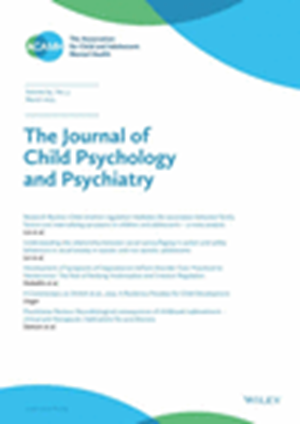Prenatal maternal infections and early childhood developmental outcomes: analysis of linked administrative health data for Greater Glasgow & Clyde, Scotland
Abstract
Background
Previous research has linked prenatal maternal infections to later childhood developmental outcomes and socioemotional difficulties. However, existing studies have relied on retrospectively self-reported survey data, or data on hospital-recorded infections only, resulting in gaps in data collection.
Methods
This study used a large linked administrative health dataset, bringing together data from birth records, hospital records, prescriptions and routine child health reviews for 55,856 children born in Greater Glasgow & Clyde, Scotland, 2011–2015, and their mothers. Logistic regression models examined associations between prenatal infections, measured as both hospital-diagnosed prenatal infections and receipt of infection-related prescription(s) during pregnancy, and childhood developmental concern(s) identified by health visitors during 6-8 week or 27-30 month health reviews. Secondary analyses examined whether results varied by (a) specific developmental outcome types (gross-motor-skills, hearing-communication, vision-social-awareness, personal-social, emotional-behavioural-attention and speech-language-communication) and (b) the trimester(s) in which infections occurred.
Results
After confounder/covariate adjustment, hospital-diagnosed infections were associated with increased odds of having at least one developmental concern (OR: 1.30; 95% CI: 1.19–1.42). This was broadly consistent across all developmental outcome types and appeared to be specifically linked to infections occurring in pregnancy trimesters 2 (OR: 1.34; 95% CI: 1.07–1.67) and 3 (OR: 1.33; 95% CI: 1.21–1.47), that is the trimesters in which foetal brain myelination occurs. Infection-related prescriptions were not associated with any clear increase in odds of having at least one developmental concern after confounder/covariate adjustment (OR: 1.03; 95% CI: 0.98–1.08), but were associated with slightly increased odds of concerns specifically related to personal-social (OR: 1.12; 95% CI: 1.03–1.22) and emotional-behavioural-attention (OR: 1.15; 95% CI: 1.08–1.22) development.
Conclusions
Prenatal infections, particularly those which are hospital-diagnosed (and likely more severe), are associated with early childhood developmental outcomes. Prevention of prenatal infections, and monitoring of support needs of affected children, may improve childhood development, but causality remains to be established.


 求助内容:
求助内容: 应助结果提醒方式:
应助结果提醒方式:


